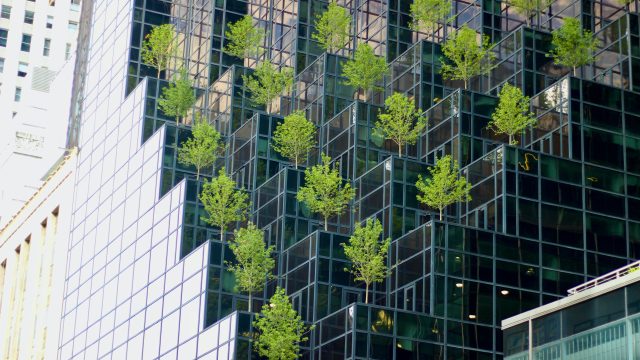Saving the planet while protecting people

In the run-up to our Global Meeting in January 2019, we asked friends and partners of the GEC to answer the question - how can we make sure everyone gets a stake in the green economy? Here, the OECD's Nicholas Evans explores how communities previously dependent on fossil fuel industries can be rehabilitated into a cleaner, more inclusive future.
In late October, the Spanish government unveiled a bold plan to close its coalmines by the end of the year. Displaced workers will receive opportunities to re-train for jobs in cutting-edge green industries, and former coal communities will benefit from environmental restoration programmes. Labour unions have praised the government’s approach as a major success. Montserrat Mir Roca of the European Trades Union Congress expressed her hope that Spain’s “just transition” model could be replicated elsewhere: “We have shown that it’s possible to follow the Paris agreement without damage [to people’s livelihoods]. We don’t need to choose between a job and protecting the environment. It is possible to have both.”
Now more than ever, decision-makers must learn from Spain’s example. The UN’s Intergovernmental Panel on Climate Change (IPCC) warned in October that our efforts to tackle rising temperatures are dangerously off track: on current trends, the world is heading for over 3 degrees of warming by 2100, with catastrophic consequences for humanity. In parallel, related environmental issues such as plummeting biodiversity and massive diffusion of plastic waste have underlined the need to transition to a greener, more sustainable model.
A growing body of evidence shows that accelerating climate action can bring strong, sustainable, balanced, and inclusive growth. OECD work indicates that if we combine growth enhancing policies and climate action, global GDP in 2050 could be nearly 5% higher from boost in investment and avoided climate damage. Recent work by New Climate Economy estimates that bold climate action could yield a direct economic gain of US$26 trillion through to 2030.
“ We don’t need to choose between a job and protecting the environment. It is possible to have both.”
Yet, as the urgency of action becomes clearer, some observers still express fears that the green transition could dampen living standards and growth. Simultaneously, political upheavals across the world have placed inequality, living standards and the fate of ‘left-behind’ communities at the top of the global agenda. Macro averages point to the possibility of an innovative, dynamic, low-carbon future; however, these figures mask the fact that some regions and socio-economic groups need extra support to smooth the transition.
To complicate matters further, suspicion towards experts and ‘elites’ has grown rapidly in recent years. Undertaking a large-scale economic transition – or even just engaging in sober discussion about it – will prove even harder when ordinary people are unconvinced that empirical evidence is neutral and objective. To persuade the public that the green transition is necessary and can benefit everyone, governments must follow Spain’s lead in demonstrating that a well-managed transition can present viable alternatives for future prosperity.
Decision-makers must consider not only how to make the case for the green transition, but also how to address the distributional effects associated with it. Affordability is a key concern: greening the global economy means radically overhauling the way we price energy and natural resources to reflect their environmental costs, and serious work is needed to ensure that consumers are not hard hit in the process. Policy-makers need to put in place accompanying measures to protect the vulnerable – for instance, by reforming tax codes and social welfare programmes.
Equally crucial are potential impacts on jobs, skills and competitiveness. Many studies show that emerging clean technologies will allow us to combine job creation and rising living standards with reduced emissions. But others predict that the benefits of the green transition will be distributed profoundly unevenly, and could intensify existing inequalities if managed badly. While certain countries and regions have the human capital and industry clusters to take advantage of the green revolution, others risk losing the industries that have been crucial to their economies and communities for decades.

Past examples of large-scale industrial transition offer sobering reminders of the challenges: from northern England to the American rustbelt, regions undergoing rapid deindustrialisation saw thousands tipped into unemployment, causing long-term economic stagnation. But as Spain’s example shows, remodelling established systems and transitioning from old industries to new engines of growth is possible.
Many firms, cities and regions view the low-carbon transition as an opportunity to spur innovation, job creation, sustainable investment, and increased resource productivity. Policymakers must make conscious efforts to minimise the impact on citizens, compensate those worst affected, and guarantee that displaced workers are retrained and supported.
With these opportunities and challenges in mind, the Sixth GGKP Annual Conference, held in conjunction with the OECD’s 2018 Green Growth and Sustainable Development (GGSD) Forum will take place on 27-29 November on the theme of Inclusive Solutions for the Green Transition.
Leading experts from governments, businesses and academia will come together to examine how best to accelerate the green transition while enhancing economic competitiveness and ensuring that the benefits are distributed fairly. In addition to exchanging experience and information on the latest state of play, participants will collaborate to identify key priorities for future work. Since 2012, the GGSD Forum has established itself as a key space for discussion and collaboration on the issues that matter for the future of the planet and the global economy. The 2018 GGSD Forum promises to facilitate crucial progress in addressing the social and economic impacts of the transition to a greener future.
- Nicholas Evans, OECD
This article was originally posted by the Green Growth Knowledge Platform. It is reprinted with permission.


